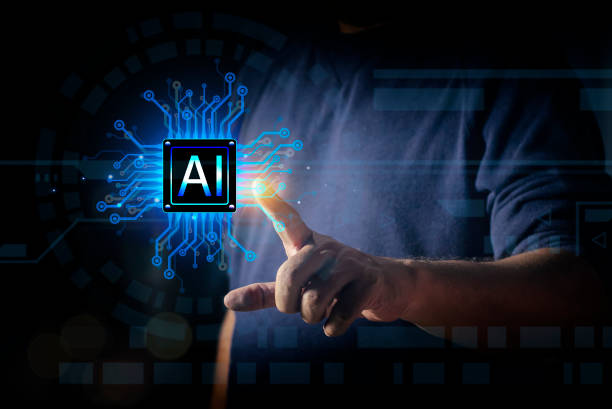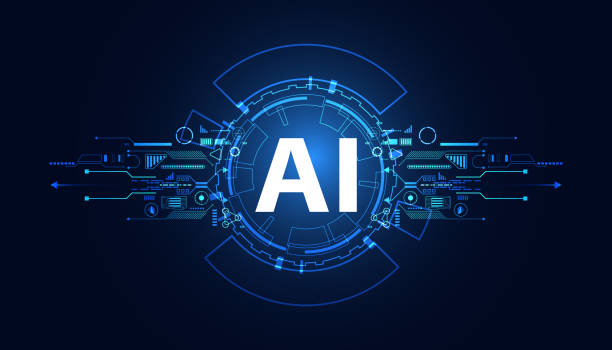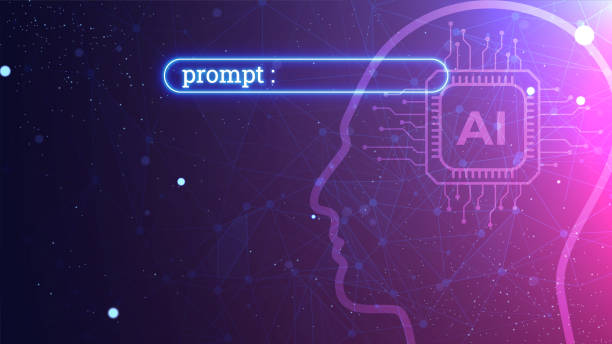What is an AI Robot and How Does it Work?
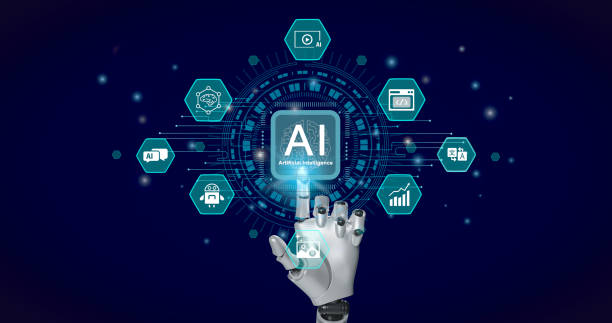
An AI robot is a combination of two important fields: #Artificial_Intelligence and #Robotics.
These robots, using complex algorithms and machine learning, are capable of performing tasks previously only expected from humans.
The basic operation of these robots involves receiving information from the environment through sensors, processing this information by an intelligent system, and finally, performing a specific action.
This action can include movement, manipulating objects, or even communicating with humans.
Artificial intelligence enables robots to make intelligent decisions by analyzing data and improving their performance.
AI robots come in various types, each designed for specific applications.
From industrial robots used in factory production lines to domestic robots that assist with cleaning and daily tasks, all are examples of the widespread applications of this technology.
In recent years, we have witnessed significant advancements in the field of AI robots, and it is expected that in the near future, the role of these robots in our lives will become more prominent than ever.
AI robots are revolutionizing various industries and have the potential to bring fundamental changes to how we live and work.
Does your current website inspire the trust that potential customers should have in your business? If the answer is no, it’s time to get your professional and impactful corporate website with Rasaweb.
✅ Fully custom design tailored to your brand identity
✅ Increase lead generation and your business’s credibility in the eyes of customers⚡ Contact us for a free consultation!
Applications of AI Robots in Various Industries
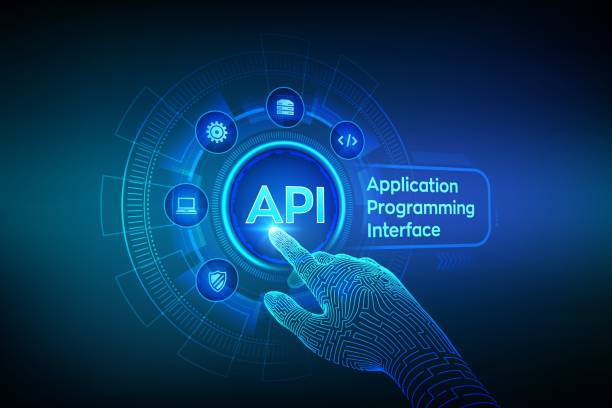
AI robots are rapidly penetrating various industries and offering diverse applications.
In the #manufacturing industry, these robots are used for repetitive, dangerous, and precise tasks, which leads to increased productivity and reduced costs.
In the #healthcare sector, surgical robots perform complex operations with high precision, and nurse robots assist in patient care.
In the #agriculture industry, smart robots use sensors and advanced algorithms to monitor soil and plant conditions, helping optimize water and fertilizer consumption.
AI robots are even used in #customer_services, increasing customer satisfaction by providing fast and accurate answers to questions.
AI robots are also employed in #finance and #banking for fraud detection, risk management, and providing financial advisory services.
Given the continuous advancements in AI, the applications of AI robots are expected to expand further in the near future and impact more industries.
AI robots, as a powerful tool, help companies increase their efficiency, reduce costs, and provide better services to customers.
Advantages and Disadvantages of Using AI Robots
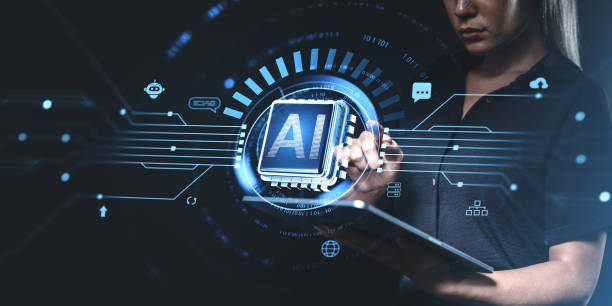
Using AI robots offers many advantages.
Increased #accuracy, #speed, and #productivity in performing tasks, reduced costs, performing dangerous and repetitive tasks without fatigue, and the ability to provide 24-hour services are among these advantages.
AI robots can also help collect and analyze big data, providing valuable information to organizations.
However, the use of AI robots also has disadvantages.
High #initial_cost of purchasing and maintaining robots, the need for expertise for their programming and maintenance, concerns about data security and privacy, and the potential replacement of human labor with robots are among these drawbacks.
Furthermore, AI robots may encounter problems in unforeseen and complex situations and fail to make correct decisions.
To fully benefit from the advantages of AI robots and mitigate their disadvantages, organizations need to accurately assess their needs and have proper planning for the deployment and use of this technology.
Despite its high potential, AI robots require proper and responsible management to effectively serve society.
AI robots should be designed and used in a way that benefits all members of society and not just a specific group.
| Advantages | Description |
|---|---|
| Increased accuracy and speed | Performing tasks with high precision and greater speed than humans |
| Reduced costs | Lowering labor costs and increasing productivity |
| Performing dangerous tasks | Performing tasks that are dangerous for humans |
| 24-hour service delivery | Ability to provide services at all hours of the day and night |
Ethical Challenges in the Use of AI Robots
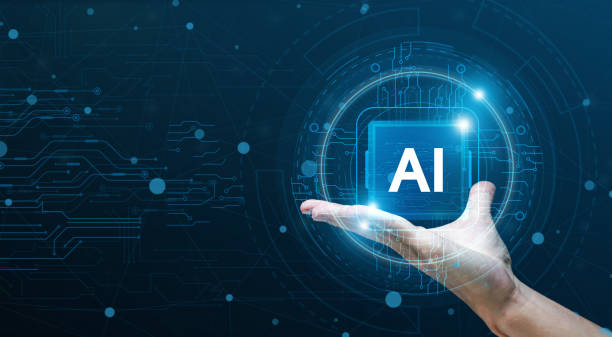
The development and use of AI robots raise important ethical challenges.
One of these challenges is #accountability for the decisions and actions of robots.
If an AI robot makes a wrong decision and causes damage, who will be responsible? The robot’s manufacturer, the robot’s user, or the robot itself?
Another challenge is #privacy and #data_security.
AI robots need to collect and process large volumes of data to perform their tasks.
How can misuse of this data be prevented and individuals’ privacy protected? Also, #discrimination and #injustice are other ethical challenges related to AI robots.
If AI algorithms are trained on biased data, they may make discriminatory decisions and harm specific groups.
Additionally, the #impact_of_AI_robots on #employment and #society is a major concern.
With the widespread use of robots, many jobs may disappear, and the class gap in society may widen.
To address these challenges, it is necessary to establish appropriate ethical regulations and standards, and for manufacturers and users of AI robots to adhere to these principles.
AI robots should be designed and used in a way that benefits all members of society and respects human rights and values.
Losing potential customers due to an unprofessional website? Rasaweb is your answer! With our specialized corporate website design services:
✅ Enhance your business’s credibility and standing
✅ Experience more targeted customer acquisition
⚡ Act now for a free consultation!
The Future of AI Robots: Prospects and Possibilities
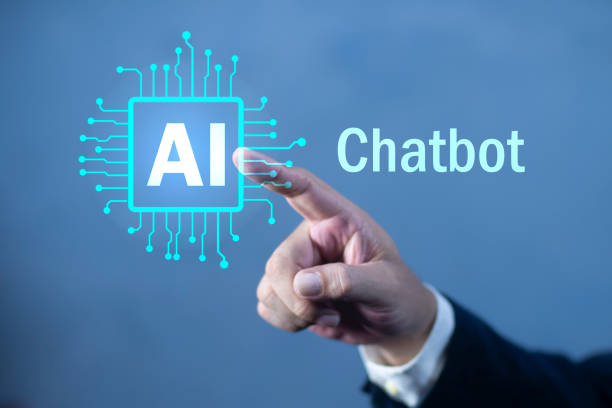
The future of AI robots is very bright and full of possibilities.
With continuous advancements in #Artificial_Intelligence, #Machine_Learning, and #Robotics, robots are expected to be capable of performing more complex and diverse tasks in the near future.
In the future, robots can play an important role in fields such as #medicine, #education, #transportation, and #space_exploration.
Surgical robots perform complex operations with high precision, teacher robots help provide personalized education to students, driverless robots autonomously navigate vehicles, and astronaut robots explore other planets.
Furthermore, AI robots can help solve major global problems such as #climate_change, #poverty, and #diseases.
Robots can assist in identifying pollution factors and providing appropriate solutions to reduce it by collecting and analyzing environmental data.
Additionally, robots can help improve people’s living conditions by providing health and educational services in remote and deprived areas.
AI robots, with their high potential, can play an important role in building a better future for all members of society.
AI robots should be designed and used to benefit humanity and help solve global problems.
AI Robots in Iran: Opportunities and Challenges
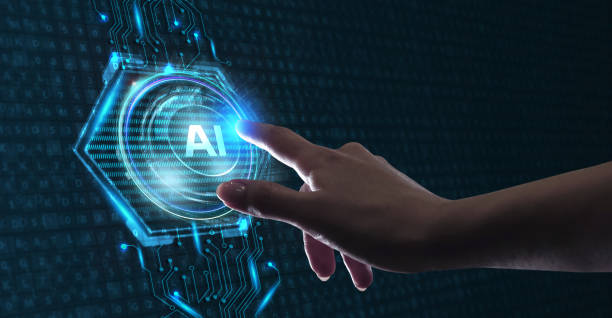
Iran, like other countries worldwide, faces numerous opportunities and challenges in the field of AI robots.
Given the high potential of specialized and young human resources in the country, Iran can become one of the hubs for the production and development of AI robots in the region.
The existence of reputable universities and research centers in the country has provided the ground for advanced research in artificial intelligence and robotics.
However, there are also challenges in this path.
Lack of investment in this area, absence of suitable infrastructure, and lack of supportive laws and regulations are among these challenges.
To fully benefit from the existing opportunities in the field of AI robots, it is necessary for the government and the private sector to cooperate, make the necessary investments, and provide suitable infrastructure.
Furthermore, drafting supportive laws and regulations and creating a suitable environment for the activities of knowledge-based companies can help develop this industry in the country.
AI robots, given their high potential, can play an important role in the economic and social development of the country.
AI robots should be developed in a way that benefits all members of society and helps solve the country’s problems.
How AI Robots Learn and Are Trained
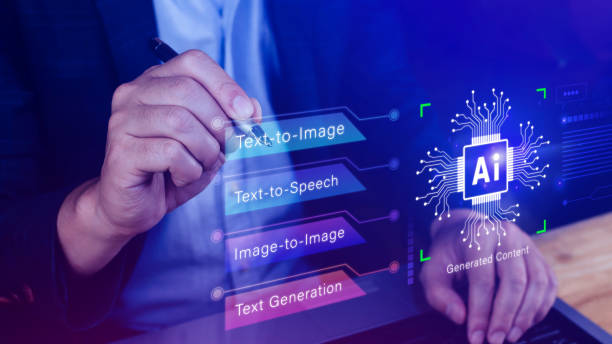
Learning and training AI robots is a complex process that involves using various #Machine_Learning and #Deep_Learning algorithms.
Robots learn patterns and relationships in data by receiving and analyzing data from their environment and adjust their behavior based on them.
There are different types of learning methods for robots, including #Supervised_Learning, #Unsupervised_Learning, and #Reinforcement_Learning.
In supervised learning, the robot is trained using labeled data and learns how to associate different inputs with desired outputs.
In unsupervised learning, the robot is trained using unlabeled data and learns to identify patterns and structures within the data.
In reinforcement learning, the robot learns through trial and error how to adjust its behavior to receive more rewards.
Training AI robots requires large and diverse datasets, advanced algorithms, and powerful hardware.
Additionally, it is necessary for experienced and skilled specialists in artificial intelligence and robotics to supervise and guide the robot training process.
AI robots, through continuous learning and performance improvement, can become a powerful tool in service of humanity.
AI robots should be trained in a way that benefits all members of society and helps solve global problems.
| Learning Method | Description | Application |
|---|---|---|
| Supervised Learning | Using labeled data to train the robot | Face recognition, speech recognition |
| Unsupervised Learning | Using unlabeled data to train the robot | Clustering, dimensionality reduction |
| Reinforcement Learning | Learning through trial and error and receiving rewards | Games, robotics |
AI Robots and Their Impact on the Job Market
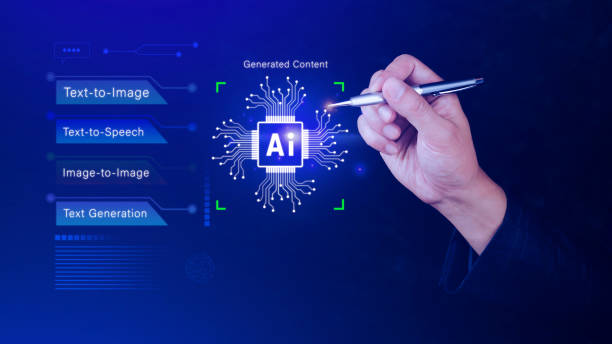
AI robots will have significant impacts on the job market.
On the one hand, with increased #automation and the replacement of human labor with robots, many repetitive and low-skill jobs may disappear.
This could lead to increased #unemployment and #social_inequality.
On the other hand, AI robots can also create new jobs.
The development, production, maintenance, and training of robots require new specialists with specific skills in artificial intelligence, robotics, and software engineering.
Additionally, AI robots can help improve working conditions and increase human productivity.
By performing dangerous and repetitive tasks, robots allow humans to focus on more creative and valuable tasks.
To address the challenges arising from the impact of AI robots on the job market, governments and organizations need to provide appropriate training and support programs.
Teaching new skills to unemployed individuals and helping them find new jobs can prevent increased unemployment and social inequality.
Furthermore, supporting knowledge-based companies and creating a suitable environment for innovation and entrepreneurship can help create new jobs and develop the country’s economy.
AI robots should be developed in a way that benefits all members of society and helps create new job opportunities and improve living conditions.
Does your current website convert visitors into customers or drive them away? Solve this problem forever with professional corporate website design by Rasaweb!
✅ Build credibility and powerful branding
✅ Attract targeted customers and increase sales
⚡ Get a free consultation now!
Cybersecurity and AI Robots

Cybersecurity is one of the most important challenges associated with AI robots.
Robots, due to their connection to computer networks and the internet, are exposed to #cyberattacks.
Hackers can infiltrate robot systems, take control of them, and use them for malicious purposes.
For example, hackers can use industrial robots to disrupt production lines, surgical robots to perform incorrect and dangerous operations, and domestic robots to spy on individuals.
To counter these threats, appropriate security measures must be considered in the design, production, and use of robots.
Using strong encryption, multi-factor authentication, and continuous software updates can help increase the security of robots.
Furthermore, it is necessary to increase user awareness about cyber threats and how to protect their robots.
Users should avoid downloading malicious software and clicking on suspicious links, and use strong passwords for their user accounts.
Given the important role that AI robots play in our lives, they require special attention to cybersecurity.
AI robots should be designed and used in a way that protects against cyberattacks and prevents their misuse.
Important Tips for Purchasing and Maintaining AI Robots

Purchasing and maintaining AI robots requires careful attention to important points.
Before buying a robot, it is necessary to accurately assess your needs and choose a robot that is compatible with them.
For example, if you intend to use the robot for heavy tasks, you should choose a robot with sufficient power and strength.
Also, you should pay attention to the #price, #quality, and #after-sales_service of the robot.
Purchasing a robot from reputable and experienced companies can prevent potential problems in the future.
After purchasing a robot, proper maintenance is also very important.
Robots require periodic servicing and repairs to ensure their optimal performance.
Additionally, it is necessary to keep robots in a suitable environment and avoid exposing them to adverse conditions such as moisture, heat, and dust.
Correct use of the robot and adherence to the manufacturer’s instructions can help extend its lifespan and improve its performance.
With proper maintenance and appropriate use, AI robots can become a valuable tool in your life and work.
AI robots should be maintained in a way that they operate safely and effectively and prevent any problems from occurring.
Frequently Asked Questions
| Row | Question | Answer |
|---|---|---|
| 1 | What is an AI robot? | An AI robot is a machine capable of understanding, reasoning, learning, and problem-solving, and can perform complex tasks with relative autonomy. |
| 2 | What are the most important applications of AI robots? | Main applications include industrial manufacturing, customer services (chatbots), medicine and surgery, autonomous transportation, space exploration, and military affairs. |
| 3 | What is the main difference between an AI robot and a regular robot? | A regular robot only follows programmed instructions, while an AI robot can learn from data, make decisions, and adapt to new environments. |
| 4 | How do AI robots learn? | They identify patterns and improve their performance through machine learning algorithms (such as deep learning, reinforcement learning) and processing vast amounts of data. |
| 5 | Can AI robots have emotions? | Currently, AI robots do not have real emotions in the human sense. They can imitate or detect emotions, but they do not understand or experience them. |
| 6 | What are the current limitations of AI robots? | Limitations include the need for large amounts of data, inability to understand abstract concepts, lack of true creativity, ethical issues, and generalizability challenges in new environments. |
| 7 | What is the role of AI in the development of humanoid robots? | AI helps humanoid robots to walk, maintain balance, perceive their surroundings, interact with humans, and perform complex tasks. |
| 8 | How is the future of AI robots predicted? | It is predicted that AI robots will become smarter, more autonomous, and capable of performing more complex tasks in daily life and industry, and their interaction with humans will increase. |
| 9 | Are AI robots able to replace all human jobs? | It is unlikely that all human jobs will be replaced. Robots will take over many repetitive and dangerous tasks, but jobs requiring creativity, empathy, and ethical judgment will remain. |
| 10 | What ethical and social challenges arise with the expansion of AI robots? | Challenges include issues related to privacy, data security, ethical decision-making by robots, impact on employment, and accountability in case of errors. |
And other advertising agency services by Rasaweb in the field of advertising
- Smart advertising campaign: A combination of creativity and technology for customer acquisition through intelligent data analysis.
- Smart website development: A dedicated service for online growth based on custom programming.
- Smart marketplace: A creative platform to improve customer acquisition with intelligent data analysis.
- Smart digital branding: Professional optimization for increased sales using Google ad management.
- Smart link building: A professional solution for increasing sales with a focus on precise audience targeting.
And hundreds of other services in the field of internet advertising, advertising consultation, and organizational solutions
Internet Advertising | Advertising Strategy | Advertorials
Sources
An article about the future of AI robots
A comprehensive guide to AI on Zoomit
News of AI innovations in IRNA
Developments in Robotics and AI on Tabnak
? To be seen and thrive, your business in the digital world, Rasaweb Digital Marketing Agency, specializing in areas such as personal website design, SEO, and online advertising campaign management, is your partner to make your brand shine.
📍 Tehran, Mirdamad Street, next to Bank Markazi, Kazerun Jonubi Alley, Ramin Alley, No. 6

